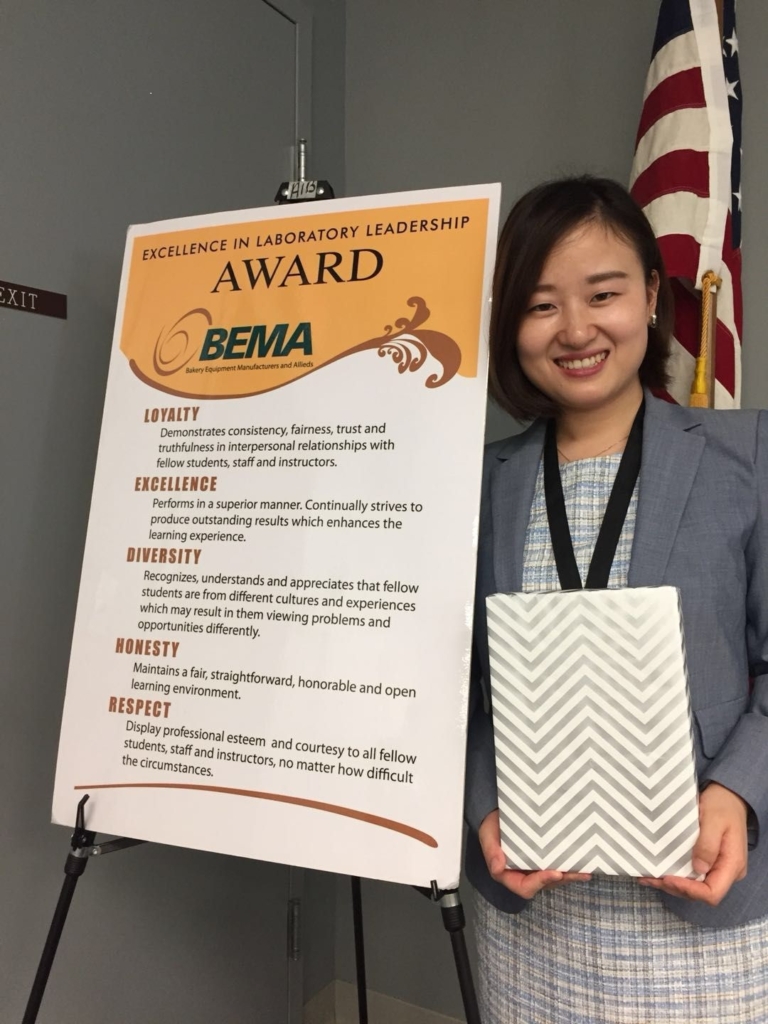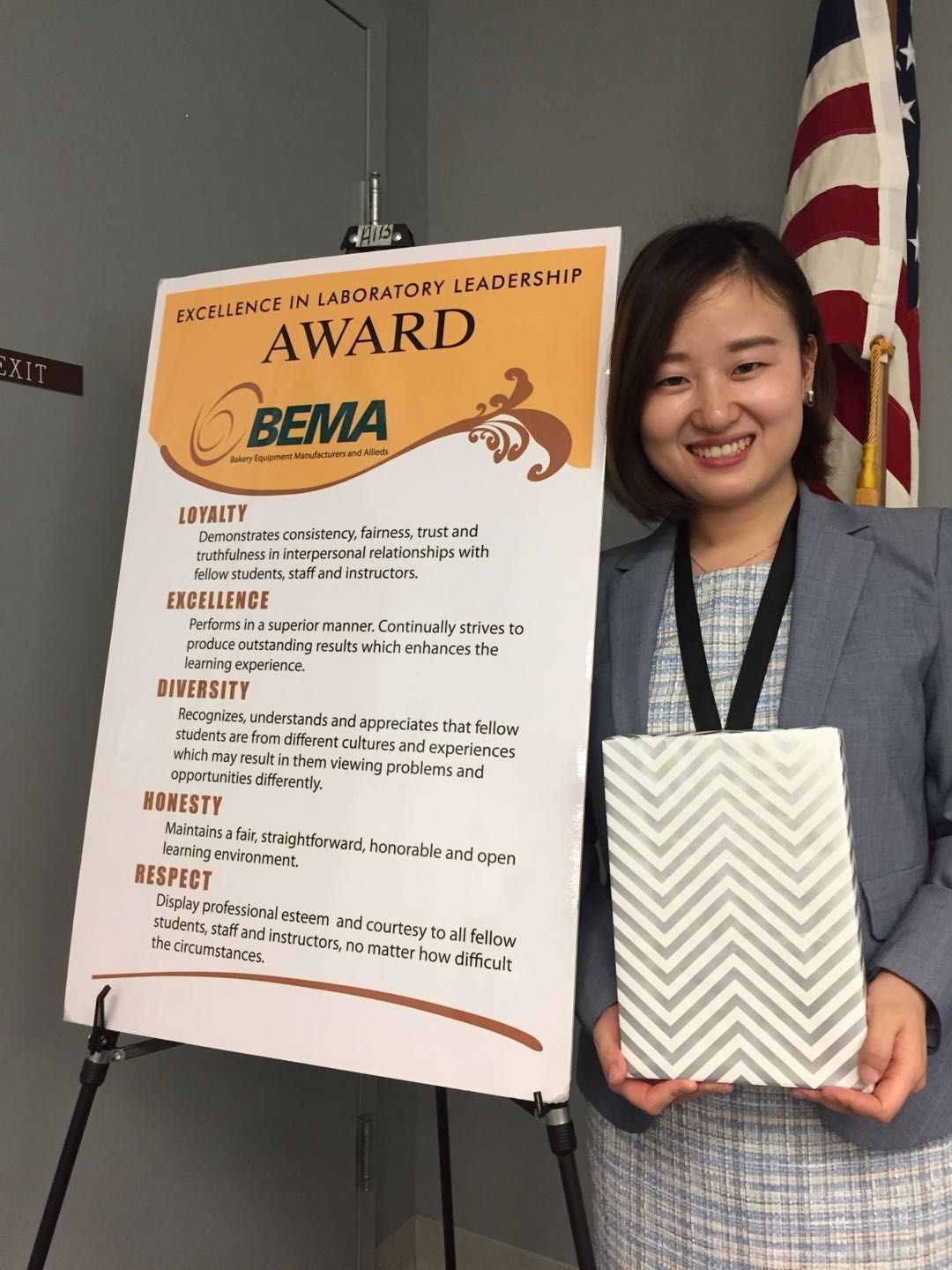The AIB Baking Science and Technology Course: A Pathway to Success
By Dr. Ting Liu, Technical Specialist, USW Beijing Office
Before attending the Baking Science and Technology (BST) course at AIB International, I was told by a former BST graduate that it would be an intensive, demanding, and competitive course. The course curriculum guide advised us to expect “a minimum of eight hours in class/laboratory and two to four hours preparing homework each day.” So even before the start of the coursework, I realized that the BST course was no piece of cake. But only later did I fully realize the abundant and comprehensive baking knowledge that is included in this course.
The majority of attendees were from industrial bakeries, including Grupo Bimbo and Yamazaki Baking Co., Ltd, and the remaining were from the baking industry, including flour mills, machine manufacturers, educational programs and market development organizations. Attendees from the United States, Mexico, Japan, South Korea, China, Philippines, India and Uganda not only shared their different cultures, but also their diverse production experience. The instructors created a great learning atmosphere, helping participants with their studies and coping with the new environment. Without support and encouragement from instructors and fellow classmates, one may not successfully finish the course.
The content consists of six major components: Baking Science, Bread and Roll Production, Cake and Sweet Goods, Operations, Food Safety and Bakers Math. The curriculum emphasizes the fundamentals of baking science, formulations and procedures, but also approaches to solving commercial industrial-scale production problems.
As expected, AIB is fully equipped, representing the state of the art equipment and tools used in current production. The instructors are very knowledgeable, experienced and patient in lecturing and answering students’ questions. The curriculum design is very clear and the instructors have clear divisions in their coursework.
Naturally the coursework focuses on extracting the highest value possible from U.S. wheat flour. The milling and flour science curriculum helped students to further understand the characteristics of U.S. wheat and flour, the flour milling process, testing methods and how to adjust formulas and processes according to flour specifications. This directly benefits U.S. wheat growers by promoting their wheat to customers in international markets.
I gained many useful skills and knowledge from the BST course. The baking fundamentals on ingredients, formulas and processes further increased my knowledge and laid the foundation for answering customers’ technical questions about using U.S. wheat. Large-scale production experiments and the operation component deepened my understanding of actual production, making me feel more confident to provide on-site technical service. Moreover, the introduction of global bakery trends enabled me to learn about other countries and promote these trends in China — hopefully to contribute to the development of the Chinese bakery industry.
U.S. Wheat Associates (USW) has a long-standing partnership with AIB and frequently sends attendees to the BST course, and assists in the application and accommodations for attendees from U.S. wheat importing countries. This cooperation is a win-win strategy for all involved. International attendees will bring what they learned at AIB back to their countries and contribute to the development of the baking industry there. The course is beneficial for U.S. wheat producers by demonstrating the high quality of U.S. wheat. USW helps spread baking culture, and promotes AIB to potential participants. All the while, AIB instructors can also learn from students about baking practices in different countries. Only by sharing knowledge can we promote the progress of all parties.

Ting Liu


